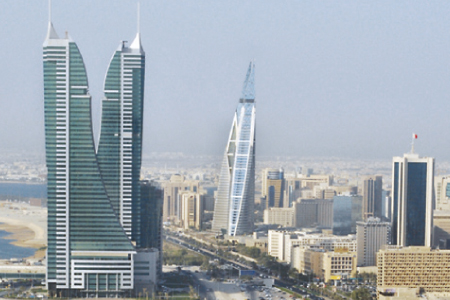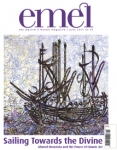
Bahrain Isn't What It Seems
Issue 81 June 2011
What was once a small island of lush greenery, developing skyscrapers and scattered historic buildings, is fast becoming the scene of political unrest.
Watching the news unfold only gives us a brief snapshot into the location of tumultuous events. With particularly low coverage of Bahrain, the warmth and unity of its people fails to come through; a reality that is completely at odds with the way the conflict is wrongly painted as sectarian.
I lived in the Ferrari Building during my stay in Bahrain. Swiss Replica Watches On the ground floor of my apartment block were the eponymous Ferrari cars, symbols of the wealth of a small elite. On Thursday and Friday nights, expensive cars such as these would rev noisily through the capital, Manama. They were raced by the young Bahraini men as well as their Saudi counterparts who would drive across the King Fahd Causeway that links the two countries together. This causeway is an eye-popping feat of engineering: 25km of road that stretches from Bahrain to the east coast of Saudi Arabia, almost floating above the twinkling water; an artificial umbilical cord that connects the island to Father Saudi.
It was 2001, before September 11th. I had arrived on the island expecting to find a replica of Dubai. But the frenzy of bright lights and moneymaking that characterise that Emirate was absent. Instead, I found a territory of quiet, cultured people, sporting a long history of civilisation.
Some were known as ‘Baharna’, the original peoples of Bahrain. Others traced their origins to Persia, and yet some to Saudi Arabia. All of them were a mix of Sunni and Shi’a. Their dialects also varied, and the locals would tell me that you could identify someone’s ethnicity by their accent and use of language.
This small island was a surprise—much greener and lusher than I expected. You could drive across all the land permitted for public access in about twenty minutes. One minute you would be driving through the spectacular eeriness of desert sands, the next were orchards of palm trees and the greenery of cultivation. Sadly, the latter were disappearing quickly. In fact, my peers recounted to me that even in their own lifetimes they remembered an island that had been almost entirely covered in green vegetation, but that it had been slowly chopped down as the increasingly wealthy wanted to build bigger homes in prime locations, such as along the coast. Those who needed access to the sea had been slowly pushed inland from the shore; fundamentally altering the fabric of a country once famed for its fishing and pearl diving. I wondered what had prompted the sons of its soil to disregard the climate and land that made Bahrain so special.
At that time, Manama was a mix of high rise buildings, hinting at skyscrapers, along with the old souq and other historic buildings. Barely ten minutes outside the city, the landscape became less populated with more traditional villas, eventually leading to small villages. I remember being invited to one family home on a night of local celebration. The young children went from house to house collecting sweets, and each home was lit up with bright lights. Compared to the big city and villas just a few minutes away, it felt like being in a different country.
The most significant event of my stay was the referendum held in February 2001 to approve the National Action Charter of Bahrain. The new Emir put forward the document after a decade of unrest. People were out on the streets with excitement, the ambience buzzing, as though a truly historic event was taking place. It was reported that over 90% of the population turned out to vote, and of those, over 98% were in favour. The following year saw the establishment of a constitutional monarchy, turning the country from Emirate to Kingdom.
Today, the party atmosphere has turned into protest, and the aspiration of those days has crystallised into urgent demands. Ten years after the approval of the charter—which itself came at the end of ten years of uprisings—it seems that Bahrainis still feel their country is not delivering the reforms they want.
Shelina is the author of Love in a Headscarf, and writes a blog at www.spirit21.co.uk
Bookmark this |
|
Add to DIGG |
|
Add to del.icio.us |
|
Stumble this |
|
Share on Facebook |
|
Share this |
|
Send to a Friend |
|
Link to this |
|
Printer Friendly |
|
Print in plain text |
|


Comments
0 Comments